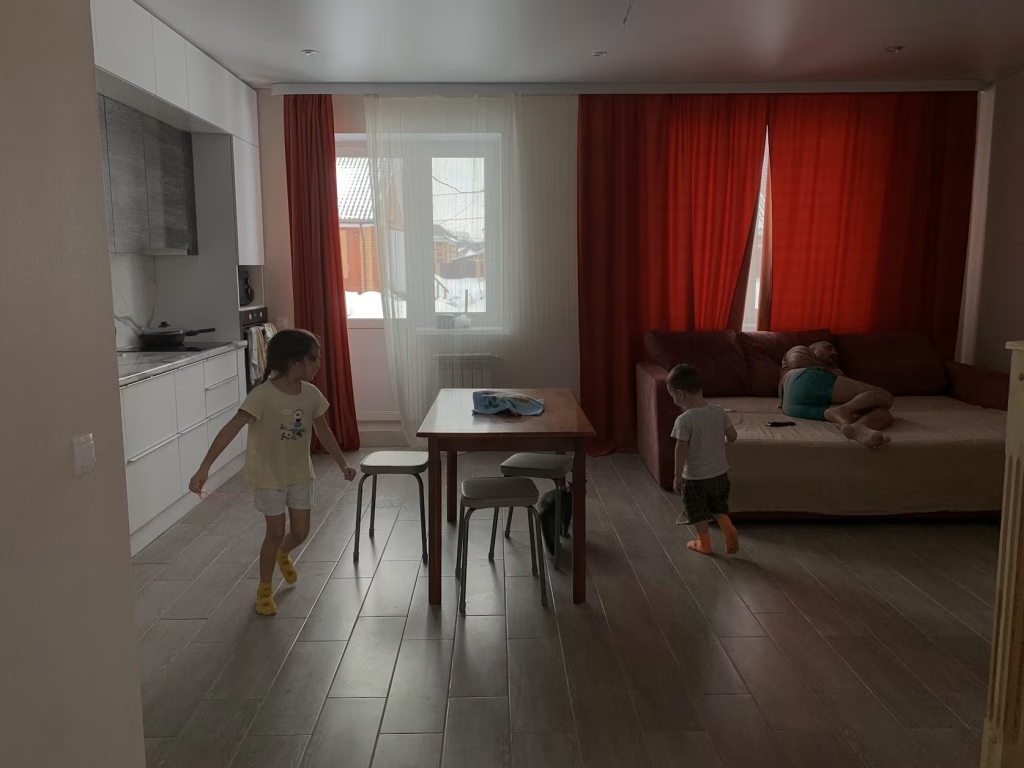
It sneaks in quietly—when you say “no” to a toy at checkout or skip the over‑the‑top birthday bash. That inner voice whispering, “Am I doing enough?” is all too familiar. Yet much of what we stress over isn’t what kids need.
The pressure to provide more—more stuff, more experiences, more perfection—is usually rooted in outside expectations, not reality. Here are seven common things children don’t truly need (even if parenting guilt tells you otherwise).
1. Brand‑New, Trendy Everything
Kids outgrow clothes and lose interest in toys fast. Choosing good‑quality hand‑me‑downs or shopping secondhand teaches gratitude and sustainability without draining your wallet.
Turn thrift trips into mini‑treasure hunts. Give your child a small budget and let them choose one “new‑to‑them” item—maybe a sparkly jacket or a stack of picture books. You’ll teach money sense, ignite creativity (“How can we style this?”), and cut clutter. When relatives ask for gift ideas, suggest experiences (museum passes, zoo memberships) or quality staples that last more than a season.
2. Over‑the‑Top Celebrations
Research shows children gain lasting happiness from connection rather than extravagance. A simple party with a few friends, cake, and shared laughter is more than enough.
Pick one “signature” ritual—pancakes shaped like their age, a birthday‑morning playlist, a handwritten letter. These cost little yet become eagerly awaited traditions. Invite just a handful of friends and let the guest of honor choose a cooperative game or outdoor adventure.
3. A Constant Yes
Saying “no” helps kids develop patience and resilience.
Create a family “pause list” for requests that aren’t urgent—new gadgets, impulse treats. Revisit the list every two weeks so desires cool (or prove genuine).
When you do decline, pair the no with empathy: “I know those sneakers look awesome. Let’s add them to your birthday wish list.”
Over time children learn patience, budgeting, and that disappointment isn’t a catastrophe.
4. Perfect School Pictures and Milestones
Keep a monthly “real‑life reel” on your phone: the missing tooth grin, the mud‑splattered jeans after soccer. Print a few candid shots and place them on the fridge where everyone can laugh together. When photo‑day panic hits, remind yourself that kids value the smile behind the crooked collar, not the collar itself. Imperfection humanizes family memories.

5. A Clean House 24/7
A spotless home is nice—but connection matters more. Parenting experts at Zero to Three emphasize that playtime promotes growth even if the living room looks chaotic.
Institute a quick “10‑minute tidy” before bedtime—set a timer, blast a song, and make cleanup a race. The rest of the day, let the Lego city sprawl. Researchers say loose‑part play in lived‑in spaces boosts cognitive flexibility. A house that occasionally looks lived in signals to children that exploration trumps presentation.
6. Constant Productivity and Perfection
Trying to do everything perfectly leads to burnout. Modeling balance shows kids healthy ways to manage stress.
Block one agenda‑free Saturday morning each month. No chores, no lessons, no errands—just unstructured time for wandering the neighborhood, building blanket forts, or doing absolutely nothing.
When kids watch you lounge with a book or take a mindful walk, they learn rest is productive too. This rhythm lowers family stress and preserves curiosity.
7. Sacrificing All Self‑Care and Spending
Treating yourself to small comforts boosts energy and mood, benefiting everyone at home. Self‑care isn’t selfish; it’s maintenance.
Schedule micro‑rituals: a 15‑minute stretch at sunrise, a Friday latte date with yourself, a quarterly friends’ night out. Explain to kids: “Just like a phone needs charging, grown‑ups need recharging.”
Let them witness you returning calmer and happier—that lived example teaches self‑respect better than any lecture.
The Real Essentials Can’t Be Bought
When you peel back parenting guilt, what remains is the desire to nurture. Kids need love, safety, presence, and acceptance—none of which require pricey upgrades or perfect optics.
Letting go of guilt around non‑essentials leaves room for joy and genuine connection.
What’s something you’ve stopped feeling guilty about? Share in the comments—we’d love to hear.
Read More

Samantha Warren is a holistic marketing strategist with 8+ years of experience partnering with startups, Fortune 500 companies, and everything in between. With an entrepreneurial mindset, she excels at shaping brand narratives through data-driven, creative content. When she’s not working, Samantha loves to travel and draws inspiration from her trips to Thailand, Spain, Costa Rica, and beyond.